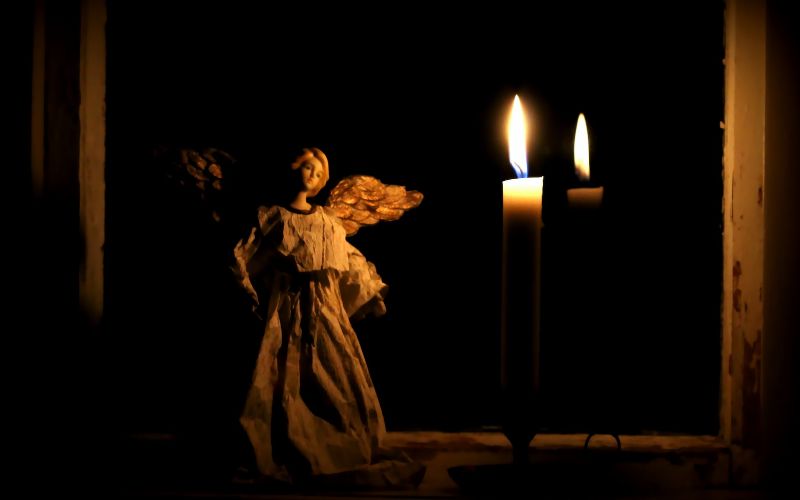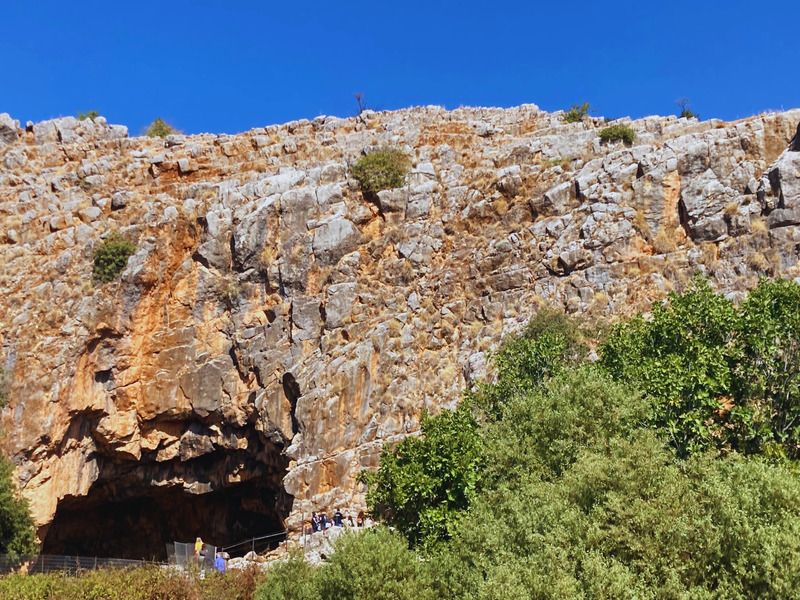“Behold I bring you GOOD news of GREAT joy…”
These familiar words from the angels to the shepherds are pronounced and sung all over the world in many languages every year at Christmas. They are familiar, wonderful, and hopeful.

Photo by Anne Nygård on Unsplash.
But perhaps we need to dig a little deeper.
Recently John and I led a group of members of the Falls Church Anglican and friends on a pilgrimage to Israel and Jordan. We are so thankful for the many people who prayed for us. One of our prayers was for each person on the trip to experience God in new ways–special insights tailor-made for them.
There were several that were meaningful to me but one in particular stands out for me during this Christmas season.
We visited the ancient city of Caesarea Philippi, located 25 miles north of the Sea of Galilee at the base of Mt. Hermon. Situated on the top of an enormous rock, the headwaters of the Jordan River flow from here.
In the time of the Greek control, pagan worship was rampant in this area. The Greek God Pan was believed to have been birthed in the large grotto. During the Roman Empire, Herod the Great built a temple here further enhancing its reputation for pagan worship. Even during the time of Christ this site was still known for its pagan worship. Sacrifices were thrown into this cave.

One of the photos from my trip of the cave at Caesarea Philippi
Isn’t it interesting to note that Jesus chose to come into this horrific place. It was here that He asked his disciples,
“Who do people say the Son of Man is?”
They replied, “Some say John the Baptist; others say Elijah and still others, Jeremiah or one of the prophets.”
“But what about you? Who do you say that I am?”
Simon Peter answered,
“You are the Messiah, the Son of the living God.” (Matthew 16: 13-16)
Why was this one word, living, so significant? So Eternal?
There were many gods being worshipped in this place. Caesar Himself was often referred to as the “son of god.” (This was new for me.)
So, when Peter exclaimed LIVING, He was emphasizing the other gods were dead, powerless. For no other god is living. From Pan to Caesar to Mohammed to Buddha they are all dead, impotent. Every other religion depends upon man’s performance.
Peter’s statement has profound ramifications for everyone.
This proclamation touched me in new ways.
* I thought about how Jesus comes to really hard places (this evil place in Caesarea!), perhaps more than beautiful, bucolic, peaceful places. He comes to the painful broken places in our lives and chooses to proclaim His power and authority there.
* I was convicted of how easy it is for me to look to false gods (idols) to bring me joy and peace–idols like health, right relationships, successes, stuff, etc., none of which will satisfy, all of which will disappear. I can easily become like the early pagans.
* I was reminded that my God is living right at this moment, the only LIVING God. He is all-powerful. He alone has the power to forgive me and to wash me clean.
He alone will never leave me. (Hebrews 13:15).
“Nothing is impossible for him.” (Luke 1:37)
* In a world of so much suffering, evil and pain, it’s hard not to live in daily discouragement. Contemplating Peter’s announcement alongside the angel’s proclamation to the shepherds, I have been encouraged not to neglect (forget) joy in the midst of a broken world.
Jesus (Immanuel) is more than a baby born in a manger. He is the living God birthed by a humble girl to be God-made-man. And the Savior of all mankind.
Behold I bring you GOOD news of GREAT JOY for all people. Today in the town of David a Savior has been born to you; he is the Messiah, the Lord.” (Luke 2:11)
Thank you, Father, for this GREAT news which brings us GREAT JOY!

 I have a gift for you! Camp at Home includes 100 things for you to do with your kids of different ages, from toddlers to teens. Join my email list now to get Camp at Home for FREE!
I have a gift for you! Camp at Home includes 100 things for you to do with your kids of different ages, from toddlers to teens. Join my email list now to get Camp at Home for FREE!

Susan, I loved this account of the cave at Cesarea Philippi–it was so powerful! I loved the adventure of going to Israel with you and John, and with all the meaningful things about the trip. It did give me new eyes to see, new ears to hear, and I am so very grateful!